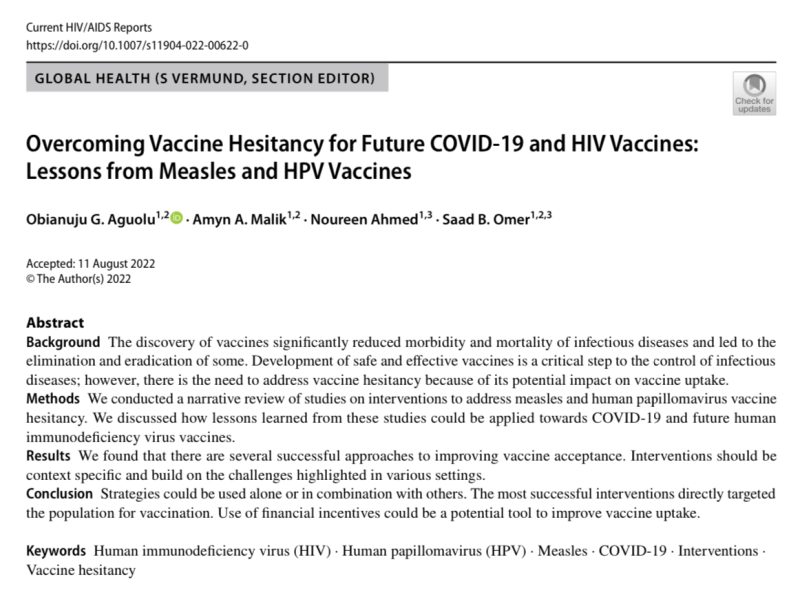
(Article by Natalie Winters republished from TheNationalPulse.com)
Researchers supported by the Gates Foundation published a study aimed at curbing vaccine hesitancy titled “Overcoming Vaccine Hesitancy for Future COVID-19 and HIV Vaccines: Lessons from Measles and HPV Vaccines.”
Released on August 11th, researchers carried out a “narrative review of studies on interventions to address measles and human papillomavirus vaccine hesitancy” to cross-apply the lessons learned towards future vaccines.
Researchers explicitly reference making people more likely to receive “future” COVID-19 vaccines as their primary goal, concluding that “the most successful interventions directly targeted the population for vaccination.”

“Use of financial incentives could be a potential tool to improve vaccine uptake,” continues the paper, which drew its analysis from a review of over 150 scientific articles.
“Message framing is a powerful tool for vaccine promotion; however, messages should be carefully framed and should be targeted to the population of interest. Financial incentives, free-of-charge vaccines, and use of vaccine champions should be considered in future vaccine promotions as they were successful in increasing both measles and HPV vaccine coverage rates,” concludes the study, which also advocates implementing vaccine programs in “schools, universities, or healthcare settings to target adolescents and/or adults.”
The study comes amidst a roll-out of advertisements focusing on myocarditis in children, which studies have repeatedly demonstrated to be a side effect of the COVID-19 vaccine.
The New York Presbyterian Hospital, for example, uploaded a video advertisement to its Youtube channel titled “Pediatric Patient Story – Suri (30s version)” on September 6th.
”Suri had a bad stomach ache that turned out to be myocarditis, a serious inflammation of the heart. Our multidisciplinary pediatric critical care team worked to regulate her heartbeat – and got her back to feeling like herself,” explains the video’s caption.
The advertisement follows an American Heart Association report acknowledging that the “risks in younger people and after sequential vaccine doses are less certain” concerning myocarditis.
The link is especially pronounced in young men, as the study found:
“In men younger than 40 years old, the number of excess myocarditis events per million people was higher after a second dose of mRNA-1273 than after a positive SARS-CoV-2 test (97 [95% CI, 91–99] versus 16 [95% CI, 12–18]).”
“In women younger than 40 years, the number of excess events per million was similar after a second dose of mRNA-1273 and a positive test (7 [95% CI, 1–9] versus 8 [95% CI, 6–8],” added the paper.
In addition to the potential drawbacks of receiving a COVID-19 vaccine, other studies have demonstrated that the product doesn’t confer immunity as well natural antibodies or as promised by the pharmaceutical companies manufacturing the vaccines.
Read more at: TheNationalPulse.com
Please contact us for more information.






















